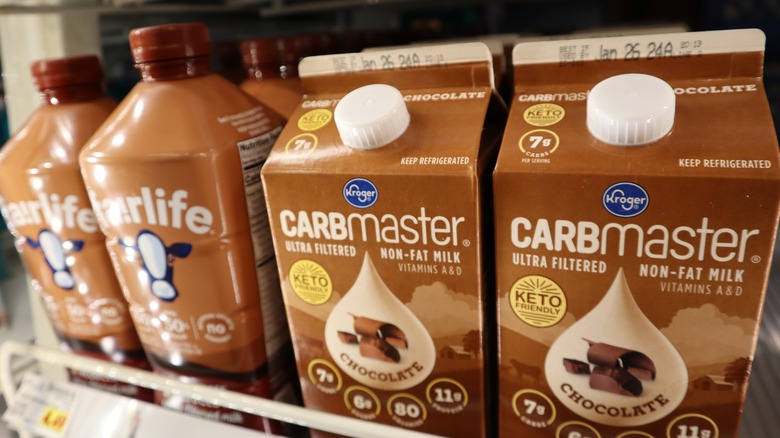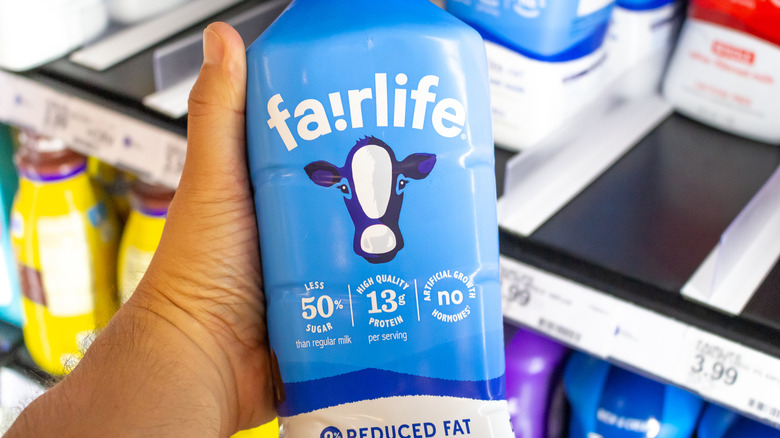What Makes Ultra-Filtered Milk Different From The Ordinary Stuff?
Milk might do your body good, but is there a way for it to do better? With more and more brands of ultra-filtered milk hitting grocery store shelves — in addition to the popular Fairlife brand, on the market since 2012 — you might be wondering what makes it different (and some say better), especially since it can cost double or triple the price of regular milk.
The unique manufacturing of ultra-filtered milk yields a product that has nearly twice as much protein and much less sugar than regular milk, which makes this drink appealing to anyone looking to watch their sugar intake or increase their protein consumption. Most brands are also lactose-free, making them ideal choices for consumers who have trouble digesting regular dairy. However, since the filtering process does not remove the milk proteins (it actually concentrates them), ultra-filtered milk is not a viable alternative for people who are allergic to dairy, in comparison to the lactose intolerant.
In addition to the extra nutritional benefits, most ultra-filtered milk also has a longer shelf life than regular milk, since it's typically ultra-pasteurized as well. Most fans find that it also tastes thicker, creamier, and sweeter, due to the concentrated protein content and addition of lactase (an enzyme that breaks lactose down into simpler sugars).
How is ultra-filtered milk made?
Ultra-filtered milk is made by using semipermeable membranes to filter milk under high pressure, removing half of the water content and lactose while leaving the protein in. Fat is then re-added as needed to produce 1%, 2%, and whole ultra-filtered milk, while additional lactase breaks down any remaining lactose (adding the enzyme is how most lactose-free milk is made). While regular whole milk has around eight grams per cup of protein (via WebMD), the finished ultra-filtered milk boasts nearly double that, at an average of 13 grams per cup (via Fairlife).
This lower-sugar, protein-packed milk powerhouse makes an excellent substitute for normal milk in just about any recipe. Use it to pump up the protein content of your favorite chocolate banana smoothie (without adding protein powder), froth the milk in a French press for delicious lattes, or pair it with your kids' morning cereal. You can bake with ultra-filtered milk, but the extra protein might make the batter thicker than usual. If so, simply thin with a little extra milk! And like regular varieties, ultra-filtered milk is also available in flavors like chocolate and strawberry, with the former being especially popular with athletes as a post-workout drink.


